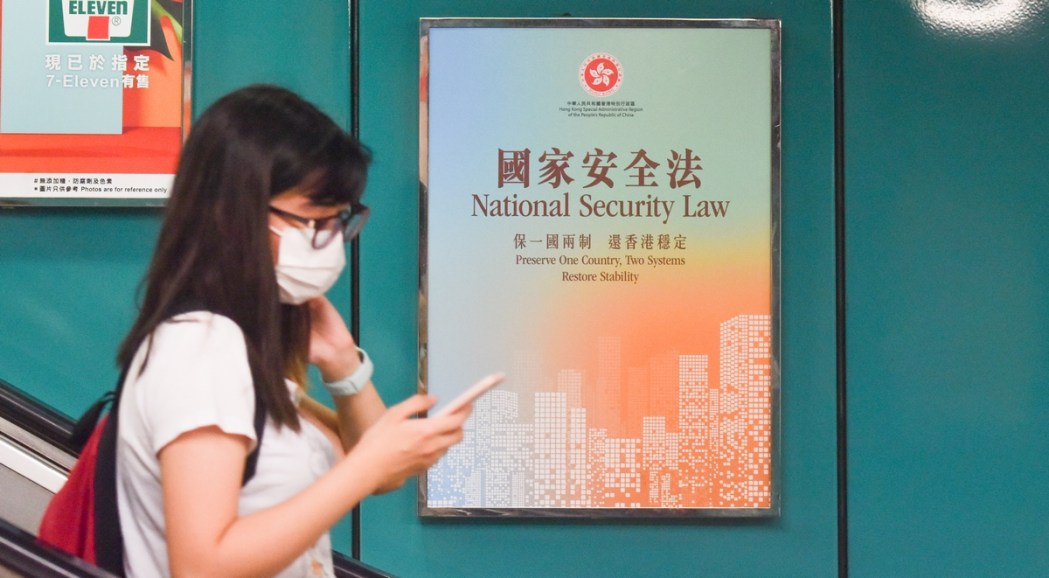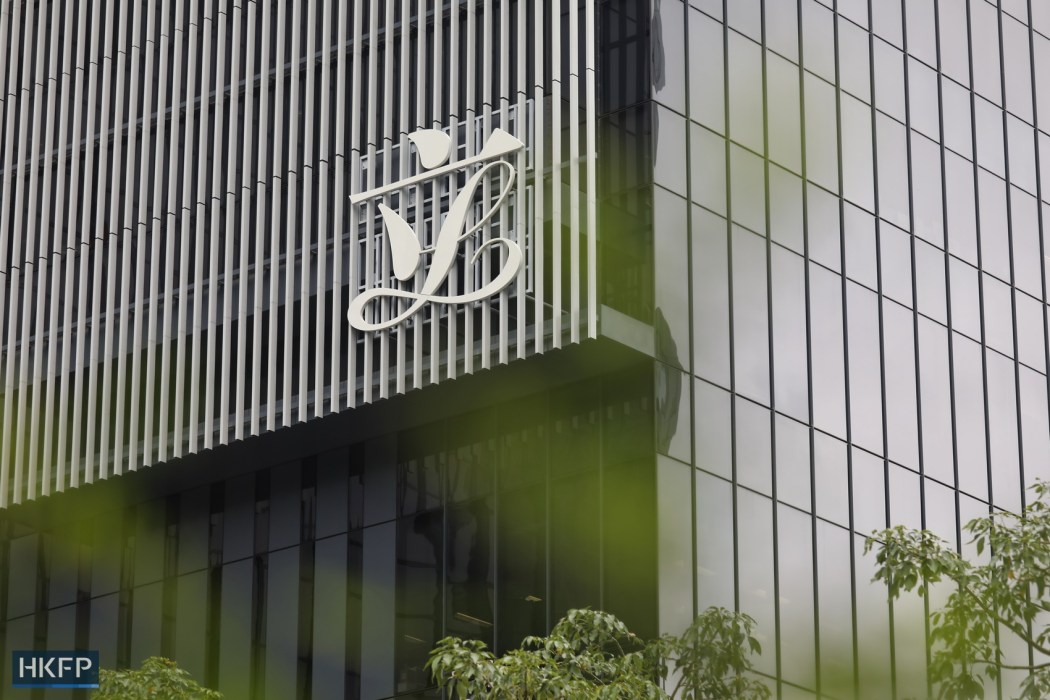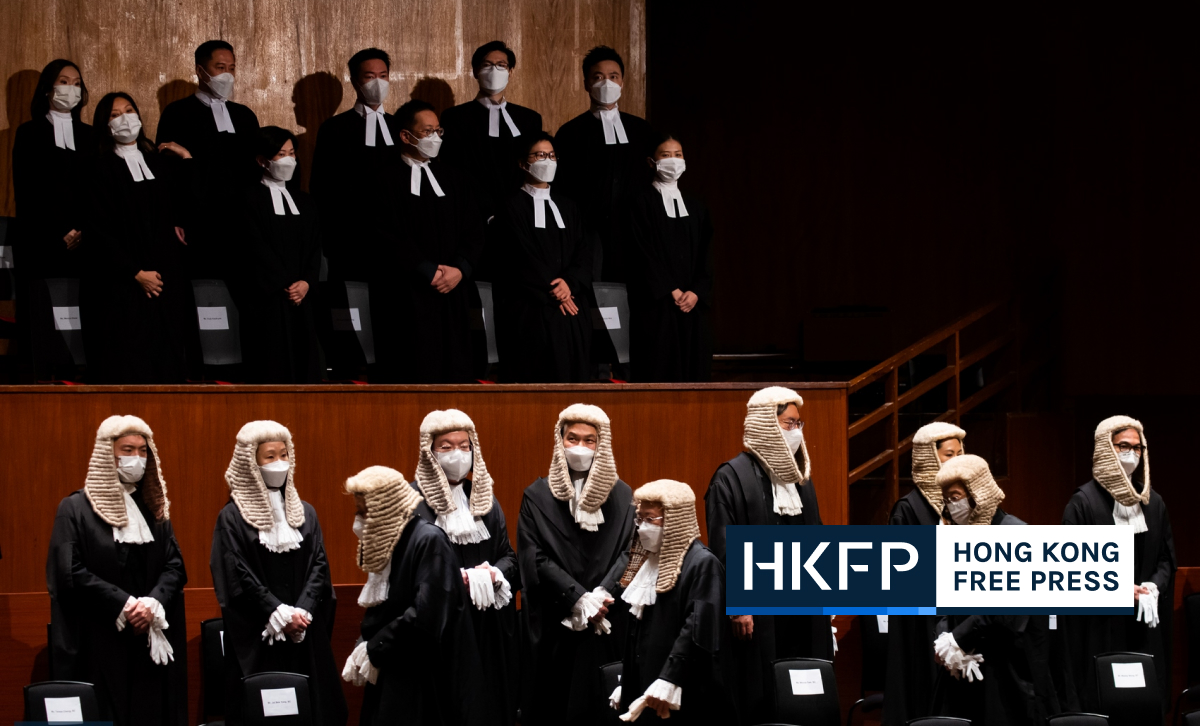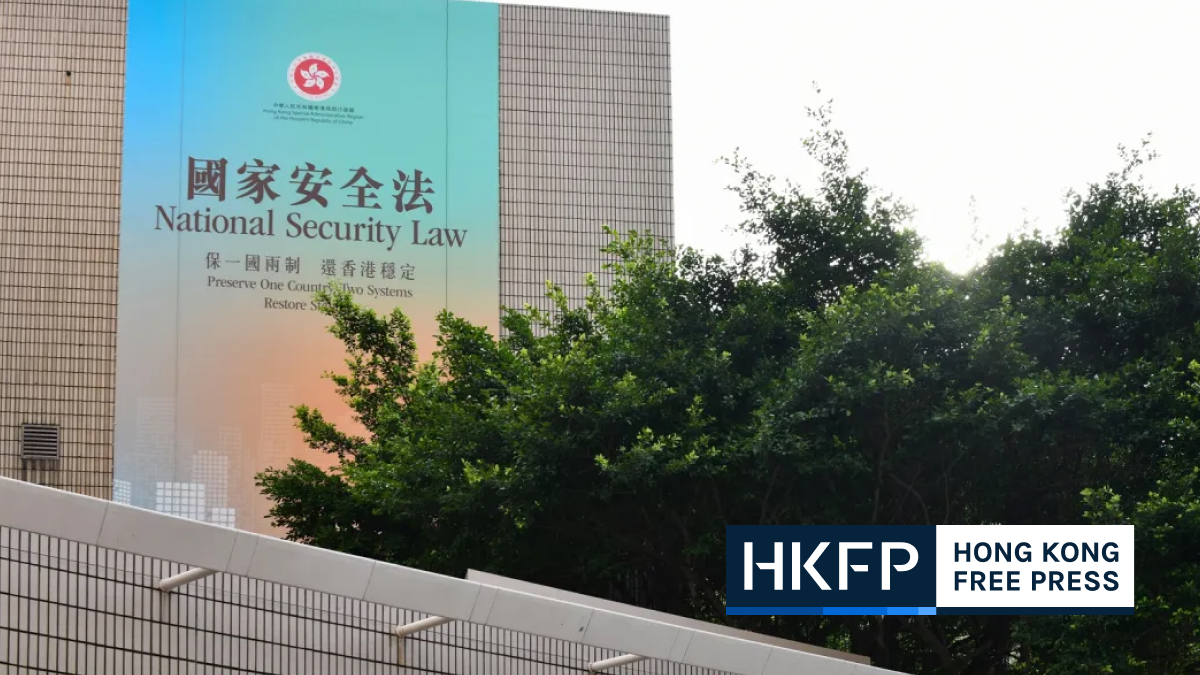The former chairperson of a pro-democracy medics’ union has said that democrats “lacked willpower” in the past and were prone to making concessions to the government, while testifying in Hong Kong’s largest national security trial.

Wearing a black top and a brown cardigan, Winnie Yu began testifying on Wednesday as the subversion trial involving dozens of former lawmakers, ex-district councillors and activists continued. The ex-chairperson of the Hospital Authority Employees Alliance is the last of the 16 defendants who pleaded not guilty to take to the stand.
Yu is one of 47 democrats charged with conspiracy to commit subversion linked to an unofficial legislative primary election held three years ago. Prosecutors have alleged that the defendants intended to abuse their powers if elected as lawmakers to indiscriminately vote down government bills and paralyse government operations.
Defence barrister Randy Shek started his examination of Yu on Wednesday morning, with his questions mostly revolving around a Chinese-language opinion piece she had posted on Facebook in March 2020. The piece, titled “Embarking on a journey of mutual destruction,” was also published in local media outlet InMedia.
In the article, Yu reflected on the role that medics played during the 2019 protests and unrest, as well as a general strike held by the Hospital Authority union in February 2020 urging the government to fully shut its borders with mainland China due to Covid-19.

Shek asked Yu what she meant by the sentence: “It is time to put a stop to the ‘compromise and criticise’ [tactic] that pan-democrats advocate.” The phrase “compromise and criticise” was commonly used by veteran moderate democrat Frederick Fung, who promoted a mild approach when negotiating with the authorities.
“The meaning is… in the past, pan-democrats lacked willpower when negotiating with the government. They were prone to making concessions,” Yu said, speaking in Cantonese.
The defendant added that she believed the legislature should be made up of lawmakers with stronger willpower who would hold the government accountable and fight for the five demands popularised during the anti-extradition protests and unrest.
Judge Alex Lee asked Yu if she thought there could be “no concessions at all in relation to the five demands.”
Yu said that was not the case. She added that while she and other democrats wanted the government to actualise the five demands, to her, the most important of the demands was universal suffrage for the Legislative Council and chief executive elections.
“With double universal suffrage, the other demands could be addressed,” Yu said.

The legislative primaries around which the national security case centres were held in July 2020, ahead of the Legislative Council election, which was later postponed because of the pandemic. Besides being split into geographical constituencies, the primaries also sought to identify a candidate to run in the healthcare sector, which is represented by one lawmaker in the legislature.
As a nurse, Yu ran in the healthcare race. She told the court that by mid-March 2020, she already knew she wanted to take part in the Legislative Council election, but that she was unaware about plans for the primaries.
She won the healthcare primary by a significant margin, receiving over three-quarters of the votes.
‘Breakthrough’
Wednesday marked the 112th day of the national security trial, which is taking place before three hand-picked national security judges. The defendants face up to life in prison if convicted.
The majority of the defendants have been detained for over two years. Yu was initially refused bail in March 2021, when the activists were charged, but was granted bail that July before being re-arrested and taken into custody last March. A judge said she had violated bail conditions.

Shek highlighted another part of Yu’s piece on Wednesday, in which she wrote that for there to be a “breakthrough,” there must be systemic reform, or even “completely turning over the system and starting anew.”
The barrister asked Yu what she meant by “breakthrough.”
Yu said she believed that at the time, society was at a “stalemate” with the government.
“The government was… refusing to listen to the public’s views and using violence to oppress [people]. People then used violence to respond to this violent oppression,” she said.
When asked by Shek if she wanted constitutional reform because she saw “no way out,” Yu agreed.
She added that the changes she desired – such as universal suffrage – were all legal and within the Basic Law.

In response, judge Johnny Chan asked: “If you had in mind the reform of the legal framework within the Basic Law, why did you use words like ‘even turn over the system?'”
Yu answered that she did not think Hong Kong’s “entire system needed to be turned over and begun anew.” The separation of powers that allocates authority to the executive, legislative, and judiciary branches should stay, she said.
“I mean, I hope the chief executive and lawmakers can be elected via public vote… and the chief executive can still be accountable to the central government, but at the same time be accountable to the people, too.”
Judge Andrew Chan asked Yu if she was aiming for a more democratic system, to which the former union chief replied “of course.”
Chan said a more democratic society does not necessarily involve universal suffrage. The UK, he added, does not hold public elections for its prime minister nor members of the House of Lords.

Yu said she understood, but that there were still many members of the British parliament who were elected, whereas in Hong Kong, the number of publicly elected seats in the legislature were slashed after the reform in 2021.
The former union chief will continue her testimony on Thursday.
In June 2020, Beijing inserted national security legislation directly into Hong Kong’s mini-constitution – bypassing the local legislature – following a year of pro-democracy protests and unrest. It criminalised subversion, secession, collusion with foreign forces and terrorist acts, which were broadly defined to include disruption to transport and other infrastructure.
The move gave police sweeping new powers, alarming democrats, civil society groups and trade partners, as such laws have been used broadly to silence and punish dissidents in China. However, the authorities say it has restored stability and peace to the city.
Support HKFP | Policies & Ethics | Error/typo? | Contact Us | Newsletter | Transparency & Annual Report | Apps

















